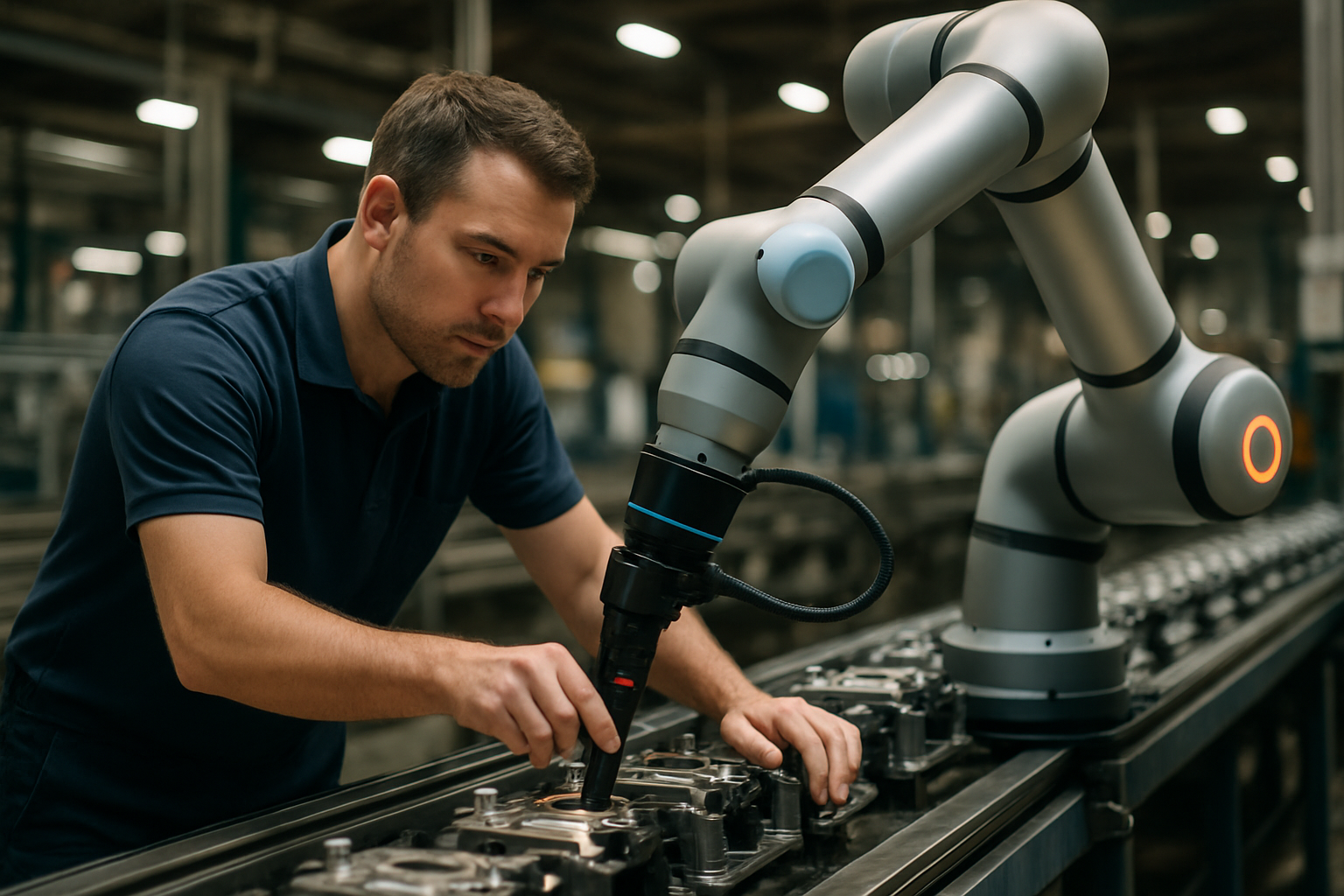Modular Manufacturing: Reshaping Production Landscapes
Revolutionizing factory floors and redefining production paradigms, modular manufacturing is emerging as a game-changing approach in the industrial sector. This innovative methodology, characterized by its flexibility and scalability, is transforming how businesses conceptualize and execute their manufacturing processes. By breaking down production lines into interchangeable, self-contained units, companies can adapt swiftly to market demands, reduce costs, and enhance overall efficiency.

The Foundation of Modular Manufacturing
Modular manufacturing is built on the principle of breaking down complex production processes into smaller, standardized units or modules. These modules can be easily reconfigured, replaced, or upgraded as needed, allowing for greater flexibility in production lines. This approach stands in stark contrast to traditional, fixed manufacturing systems that often require significant time and resources to modify.
The concept draws inspiration from the modular design principles used in other industries, such as construction and software development. By applying these principles to manufacturing, businesses can create production systems that are not only more adaptable but also more resilient to disruptions and changes in demand.
Key Components of Modular Manufacturing Systems
At the heart of modular manufacturing are the individual modules themselves. These can include:
-
Process Modules: Self-contained units that perform specific manufacturing tasks.
-
Equipment Modules: Standardized machinery that can be easily integrated into different production lines.
-
Control Modules: Systems that manage and coordinate the operations of various modules.
-
Utility Modules: Units that provide necessary resources such as power, water, or compressed air.
These modules are designed to be plug-and-play, allowing for rapid reconfiguration of production lines. The standardization of interfaces between modules ensures seamless integration, reducing downtime during changeovers.
Benefits of Embracing Modular Manufacturing
The adoption of modular manufacturing offers numerous advantages for businesses across various industries:
-
Increased Flexibility: Companies can quickly adapt to changes in product design or market demand by reconfiguring their production lines.
-
Reduced Time-to-Market: New products can be introduced more rapidly by leveraging existing modules and configurations.
-
Cost Efficiency: The ability to reuse and repurpose modules can lead to significant cost savings over time.
-
Improved Quality Control: Standardized modules make it easier to maintain consistent quality across production runs.
-
Enhanced Scalability: Production capacity can be easily scaled up or down by adding or removing modules as needed.
Challenges in Implementing Modular Manufacturing
While the benefits of modular manufacturing are compelling, businesses must also navigate several challenges during implementation:
-
Initial Investment: The upfront costs of transitioning to a modular system can be substantial.
-
Standardization: Developing standardized interfaces and protocols for modules across different suppliers can be complex.
-
Training and Skill Development: Employees need to be trained in working with modular systems and managing reconfigurations.
-
Design Complexity: Creating modular production systems requires careful planning and expertise in systems engineering.
Overcoming these challenges requires a strategic approach and a long-term vision for manufacturing operations.
Industries Leading the Modular Revolution
Several industries are at the forefront of adopting modular manufacturing:
-
Automotive: Car manufacturers are using modular platforms to produce multiple vehicle models with shared components.
-
Electronics: Consumer electronics companies leverage modular production to quickly adapt to technological advancements.
-
Pharmaceuticals: Modular cleanrooms and production units are enabling more flexible and efficient drug manufacturing.
-
Aerospace: Aircraft manufacturers are exploring modular assembly lines to streamline production of complex components.
These industries serve as examples of how modular manufacturing can be successfully implemented across diverse sectors.
Strategies for Successful Modular Manufacturing Implementation
• Conduct a thorough analysis of current production processes to identify opportunities for modularization
• Invest in advanced design and simulation tools to optimize module configurations
• Develop clear standards and protocols for module interfaces and connectivity
• Foster partnerships with suppliers to ensure compatibility and availability of modular components
• Implement robust training programs to equip staff with the skills needed for modular operations
• Start with pilot projects to test and refine modular concepts before full-scale implementation
• Establish a continuous improvement process to evolve and optimize modular systems over time
In conclusion, modular manufacturing represents a significant shift in industrial production paradigms. By offering unprecedented flexibility, scalability, and efficiency, it enables businesses to stay competitive in rapidly changing markets. While challenges exist, the potential benefits make modular manufacturing a compelling option for forward-thinking companies. As more industries embrace this approach, we can expect to see continued innovation in manufacturing processes, leading to more agile and responsive production ecosystems.





